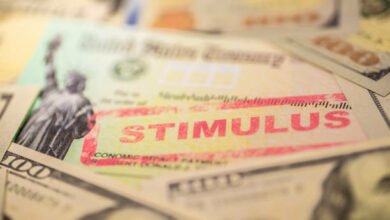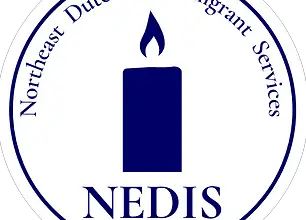21 Easy Drug Rehab Grants In The US
Millions of people in the US battle addiction on a daily basis. Drug rehab can be expensive or unaffordable. That’s where drug rehab grants come in.
In this comprehensive guide, we’ll cover everything you need to know about drug rehab grants: who is eligible, how to apply, and more. So if you or someone you know is struggling with addiction, don’t despair. Help is very much available.
What Are Drug Rehab Grants?
Many people in the United States who are struggling with substance abuse could benefit from expert help. The perceived cost of addiction treatment, on the other hand, may deter some people from seeking help. It’s quite natural to require assistance in paying for drug rehab, and fortunately, there are several number of solutions available to assist in covering the costs of treatment.
People who are battling with substance abuse difficulties and need treatment have a variety of alternatives, including insurance coverage and grants for rehab institutions. The following are some examples of financial aid for substance misuse treatment:
- Substance abuse treatment programs and detox dependency treatment programs are both subsidized by the state, and some of them are covered by:
- Grants from SAMHSA (Substance Abuse and Mental Health Services Administration).
- Medicare and Medicaid
- Department of Veterans Affairs of the United States of America.
- The Affordable Care Act
Drug rehab grants are monetary awards given to those in need of drug rehabilitation services. The purpose of these grants is to provide financial assistance to those who cannot afford to pay for drug rehab out-of-pocket. Drug rehab grants can come from a variety of sources, such as the government, private organizations, or even individuals.
How To Find Drug Rehab Grants
There are a few different ways that you can find drug rehab grants. The first place to start is with your state government. State governments offer a range of grants and programs to help residents with addiction and mental health issues.
READ ALSO: MBA Grants: 15 Free Grants For You
The second place to look is with the federal government. The Substance Abuse and Mental Health Services Administration (SAMHSA) offers a variety of grants for drug rehab and mental health treatment.
Finally, there are a number of private foundations that offer grants for drug rehab. Some examples include the MetLife Foundation, the Robert Wood Johnson Foundation, and the Betty Ford Foundation.
To apply for a drug rehab grant, you’ll first need to determine which type of grant you’re eligible for. Once you’ve identified the right grant, you’ll need to complete an application form and submit it with all required documentation. Be sure to carefully read the eligibility requirements and application instructions so that your application stands the best chance of being approved.
Types of Drug Rehab Grants
Those seeking financial assistance for rehab have the option of obtaining funds from rehabs through their programs. Government subsidies, block grants, full and partial scholarships are available to patients. The following are some of the different categories of scholarships and grants for substance abuse:
- Block grants: The Substance Abuse Prevention And Treatment Block Grant (SABG) program is offered by SAMHSA. The award covers all fifty states in the United States. The block grant is for people in need of recovery, mothers or expectant mothers, IV drug users, and those most at risk of substance misuse.
- Partially funded scholarships: Provides financing for a portion of the rehab costs.
- Full scholarships: These provide funding to pay the entire cost of rehabilitation.
Inpatient Vs Outpatient Drug Rehab Programs
Outpatient rehab programs provide drug and alcohol therapy as well as support groups that can be attended at any time during the week. Patients can keep their normal obligations and live at home on this plan, but they must check in for counseling and medicine at their appointed times.
Outpatient programs come in a wide range of forms, but the main focus is on counseling, education, and the development of a support network.
Inpatient rehab is a home treatment center where patients stay for varying durations of time based on their treatment plan. Although most addiction treatment clinics offer longer programs, the average stay is 30 days (60 days, 90 days, or even longer). The length of therapy is determined by a number of factors, which includes, but is not limited to, the severity of the addiction, the presence of any co-occurring mental health issues, and whether the individual has previously completed treatment.
Family programs are available in most inpatient facilities when members of the patient’s family participate in family counseling and activities. This gives you the chance to rebuild trust and uncover any problematic relationships or dynamics that can lead to a relapse. By being actively involved in their loved one’s recovery, families may assist encourage, and support them.
Each inpatient residential facility has its own set of facilities. Some are simple, with shared dormitories, cafeteria-style meals, and pool and ping-pong as recreational activities. Others may provide exclusive luxury suites with hot meals and a variety of amenities such as a pool, spa, and fitness center.
ALSO READ: 24 Useful Grants Management Systems For Your Organization
Medicaid And Medicare
Medicaid is a federally financed, state-supported, and state-operated health insurance program that offers partial coverage of drug rehabilitation expenses. According to a November 2020 medical report, Medicaid covered around 72.5 million Americans in 2017, providing assistance for a variety of services. Medicaid currently accounts for 17% of health-care coverage, and Medicaid enrollees are as follows:
- 9% of the population is over the age of 65.
- 14% of the population are disabled
- 34% of the population are adults under the age of 65
- 43% of the population are children
Medicaid can help with both inpatient and outpatient therapy. Whether facilities decide to accept Medicaid would be solely up to them. CMS.gov indicates that those who do provide inpatient coverage would also cover a portion of the inpatient visit, or separately from professional payment for the offered services.
The offered services would have to be. If covered, on a service-by-service basis. If non-self-administered drugs meet Part B requirements, they will also be covered. To get more information, conducting research based on your individual Medicaid needs can be helpful.
The provision of Medicare has resulted in a steady growth in the number of people covered, from 13% in 1990 to 18% in 2019. The program has however has been set aside for people aged 65 and beyond, as well as disabled people.
Individuals who qualify for Medicare can choose between two types of coverage: Medicare and Medicare Advantage, according to Medicare.gov. Furthermore, for individuals who qualify, Medicare can be coupled with other insurance. Medicare does not cover all medical expenses, although it does provide partial coverage in several areas. Medical visits, alcohol detox treatment, prescription drugs, and mental health therapies are all covered under Medicare.
When a person reaches the age of 65, they are automatically enrolled in Medicare Part A (which covers hospital stays) and Part B (which covers medical visits). But, they must pay a monthly premium for all the months they will need Part B coverage.
ALSO READ: Can You Get Grants For Online Colleges: Discover 4 Options For You
How To Apply For Drug Rehab Grants
Individuals in need of financial support for substance misuse can apply for grants and scholarships in addition to Medicare and Medicaid. Scholarships, given out in this regard, are “needs-based” and they provide partial or full support for substance misuse treatment and care. Individuals in need of drug or alcohol rehab have the option of attending because they are financially supported. Scholarships and grants, fortunately, can promote drug addiction rehabilitation as well as a commitment to receiving necessary treatment.
In addition to drug treatment scholarships, state-funded facilities may provide financing for people to undergo rehab, and you may be eligible for such grants. Also, you can look into which faith-based organizations provide financial assistance for addiction, while also checking up on non-profit groups, charity and insurance possibilities, and sliding scale services.
Finally, finding out which companies in your state provide addiction scholarships and grants might help you explore other choices.
To apply for a drug rehab grant, you need to gather some information first. You’ll need to know your state’s social services agency, as well as the type of assistance they offer. This could be in the form of cash assistance, coverage for medication or therapy, or help finding a treatment program. You can find this information by doing an online search or contacting your state’s social services agency directly.
Once you have this information, it’s time to start the application process. This usually involves completing a form and submitting documentation that proves you meet the eligibility requirements. Be sure to read the instructions carefully and provide all the required information. If you have any questions, don’t hesitate to contact the grant provider directly.
Eligibility or Drug Rehab Grants
The application procedure is straightforward. Those looking for scholarships or grants might use websites such as GrantWatch.com or help.com to learn how to get started. Another way to get an application is to do some research on private rehabs and inquire about scholarships before applying. Some facilities or scholarships may have limitations; as a result, contacting them or researching the requirements can be beneficial.
READ ALSO: 6 Free Federal Small Business Loans And Grants
Patients may, for example, be required to demonstrate that they have attempted to receive therapy but have run out of options. Furthermore, individuals who can demonstrate their commitment to recovery may have a better chance of receiving rehab scholarships. This could involve having to supply insurance information or applying for many scholarships in order to boost your chances of being accepted.
What To Do If You’re Not Approved For Drug Rehab Grants
Unfortunately, not everyone who applies for a drug rehab grant will be approved. If you’re not approved, don’t give up! There are still plenty of ways to get the help you need. You can search for scholarships or private funding, or look into government loans or credit options. There are also many private rehab centers that offer payment plans or sliding-scale fees based on your income. Don’t let the fact that you didn’t get a grant keep you from getting the rehabilitation you need and deserve.
Drug Rehab Grant FAQs
Drug rehab grants can seem like a great solution for those who need help getting treatment for their addiction, but are unsure of how to pay for it. There are many different grants available, each with their own set of requirements and procedures. Here are some of the most common questions people have about drug rehab grants:
Conclusion:
If you or a loved one is struggling with addiction, getting help can feel like an overwhelming task. You may not know where to start or how to afford treatment. That’s where drug rehab grants can help. Drug rehab grants are available to help pay for drug rehabilitation programs, and this guide will teach you everything you need to know about how to get them.




